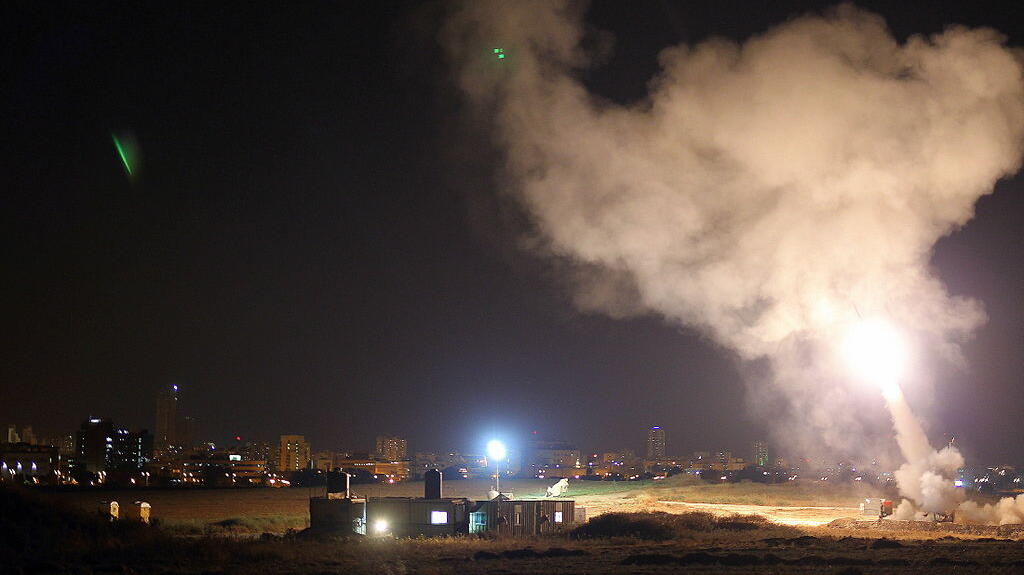Israel has pledged to retaliate after Iran launched a massive missile attack on Tuesday, firing more than 180 ballistic missiles at various targets across Israel.
The attack marks a significant escalation in the ongoing conflict between the two nations, prompting warnings of further regional instability.
“Iran made a big mistake tonight – and it will pay for it,” Israeli Prime Minister Benjamin Netanyahu said during a late-night security cabinet meeting on Tuesday. “The regime in Iran does not understand our determination to defend ourselves and retaliate against our enemies.”
The Iranian missile barrage followed Israel’s largest ground incursion into southern Lebanon in decades, heightening tensions between the two countries.
The missiles, some intercepted by Israel’s defence systems, targeted Israel’s main coastal cities, filling the night sky with trails of red and gold. Air raid sirens blared across Israel, urging millions to seek shelter.
While Israel’s military reported no significant injuries from the attack, the Palestinian Civil Defence Authority confirmed one death near Jericho in the West Bank. Falling missile debris caused fires and property damage in the area.
Iran claimed responsibility for the strike, stating it was retaliation for recent Israeli attacks on Hezbollah positions in Lebanon, which devastated parts of southern Beirut and surrounding villages. The Iranian government stated the missile strike targeted three Israeli military bases.
Iranian President Masoud Pezeshkian declared the missile strikes a “decisive response to the Zionist regime’s aggression,” warning Netanyahu not to underestimate Iran’s resolve.
Senior Iranian officials confirmed that the supreme leader, Ali Khamenei, personally authorised the attack. However, Iran’s foreign minister, Abbas Araghchi, later stated the action was “concluded unless the Israeli regime invites further retaliation.”
The missile strikes come amid faltering diplomatic efforts to halt the escalating violence. Attempts to broker a 21-day ceasefire by the U.S. and France quickly unraveled as the conflict spiraled. World leaders, including UN Secretary-General António Guterres, called for restraint, with Guterres condemning the continuous escalation and urging an immediate ceasefire.
The Israel Defense Forces (IDF) condemned the Iranian attack and vowed retaliation, while the US warned that Iran would face severe consequences for its actions. U.S. Navy destroyers stationed in the eastern Mediterranean reportedly intercepted several missiles launched by Iran.
The conflict has raised fears of further violence. A gun attack in the Israeli city of Jaffa, just minutes before the missile strike, resulted in six deaths and ten injuries, compounding concerns that violence could spread internally within Israel.
Israeli citizens, already bracing for missile attacks, now face additional fears of terror strikes. Airspace over Israel has been closed to civilian aircraft, while the Israeli air force continues conducting strikes across the Middle East, targeting Hezbollah positions in Lebanon, Syria, and Yemen.
International leaders have called for restraint, with British Prime Minister Keir Starmer reaffirming the UK’s commitment to Israel’s security but stressing the importance of pursuing ceasefires. British Defence Secretary John Healey confirmed that British forces were involved in efforts to prevent further escalation in the region.
Oil prices surged by 5% in response to the Iranian missile strikes, reflecting heightened concerns about the broader implications of the conflict on the global economy.
U.S. and Israeli officials continue to monitor the situation closely, with Israel conducting further military operations and preparing for potential retaliation from Iran or its regional allies.
